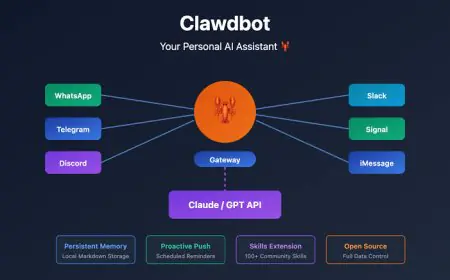Perplexity AI Pioneers New Advertising Model for AI Search Engines
Perplexity AI introduces a groundbreaking advertising model for AI search engines, balancing monetization with user experience while maintaining search result integrity.

In a pioneering move that could reshape the future of AI search engines, Perplexity AI has announced the introduction of a novel advertising model to its platform. The company, which processes over 100 million weekly search queries, is charting new territory in the AI industry by demonstrating how advanced search platforms can balance monetization with user experience.
The innovative advertising approach, launching initially in the United States, introduces "sponsored follow-up questions" that appear alongside search results. This marks a significant departure from traditional digital advertising models, as Perplexity maintains strict separation between commercial interests and its core AI-driven search functionality. The company has emphasized that while questions may be sponsored, all answers will continue to be generated independently by their AI technology, ensuring the preservation of their commitment to unbiased information delivery.
Major brands have already embraced this new advertising paradigm, with Indeed, Whole Foods Market, Universal McCann, and PMG among the first wave of partners. These collaborations represent a significant vote of confidence in Perplexity's vision for the future of AI-powered search advertising. The platform's advertising strategy spans 15 key categories, including technology, health, finance, and entertainment, with premium pricing that positions it as a high-value option in the digital advertising landscape.
At the heart of this initiative lies a broader strategy to create a sustainable ecosystem for AI-powered search. Perplexity's approach extends beyond mere monetization, incorporating a revenue-sharing program with content publishers. This innovative model allows publishers to benefit financially when their content is cited in search results, creating a more collaborative and sustainable digital content ecosystem.
The company's decision to implement advertising comes at a crucial moment in its growth trajectory. With reports suggesting Perplexity is approaching a $500 million funding round at a $9 billion valuation, the pressure to establish a robust revenue model has intensified. The current subscription model, priced at $20 per month for Perplexity Pro, while successful, hasn't generated sufficient revenue to support the platform's ambitious growth plans and publisher partnerships.
What sets Perplexity's advertising model apart is its careful consideration of user privacy and search integrity. The company has established clear principles: no sharing of personal information with advertisers and no compromise on the objectivity of search results. This approach stands in contrast to traditional SEO-driven models, where ranking manipulation often takes precedence over user utility.
The implementation of this advertising model also represents a divergent path from other major players in the AI space. While platforms like OpenAI have avoided advertising entirely, and Google's AI search tools have taken a more cautious approach, Perplexity is actively defining what ethical and effective advertising can look like in the age of AI search.
Looking ahead, Perplexity views this initiative as an evolving experiment, with potential refinements based on user feedback and performance metrics. The company's transparent approach to implementing these changes, including openly discussing the rationale and methodology, sets a precedent for how AI companies can navigate the complex balance between commercial viability and user trust.
For the broader AI industry, Perplexity's move could serve as a blueprint for monetizing AI-powered services while maintaining technological integrity. As more AI companies grapple with the challenge of building sustainable business models, this innovative approach to advertising might offer valuable insights into balancing commercial interests with user-centric service delivery.
The success of this initiative could have far-reaching implications for the future of AI search engines and digital advertising. If Perplexity's model proves effective, it could establish a new standard for how AI-powered platforms can generate revenue while preserving the quality and objectivity of their core services.



























































